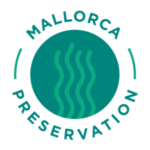Marc Masmiquel Interview
Marc Masmiquel, coordinator of the Sustainability Observatory, a Mallorca Preservation project financed by Banca March.
Marc Masmiquel has always felt a profound connection to the land he inhabits, drawn to its diversity and richness – a richness primarily of an environmental nature. Over the years, this appreciation has deepened, particularly as he became more aware of the material limitations and the impacts of the fossil-based production model. His father, an engineer and astronomer, greatly influenced him. “He had a very curious outlook, and that inevitably shapes how you see the world,” Marc asserts.
Academically, Marc pursued studies in Psychology and Political Philosophy. During his university years, he encountered the 1994 Worldwatch Institute’s annual report, “The State of the World,” a multidisciplinary analysis of environmental impacts. In 1996, a personal meeting with Noam Chomsky led him to profoundly reflect on the causal connections between development models and their social and environmental impacts.
Subsequently, Marc engaged in international cooperation programs. Living in various countries, he witnessed firsthand the extent of certain harmful practices to nature, such as deforestation, the use of genetically modified organisms, and pesticides. After spending several years in Paraguay, Peru, and the USA, he returned to Mallorca and established his own design and research studio. His experiences in devastated areas not only heightened his sensitivity but also, concurrently, influenced his work back home in Mallorca as a designer. This was further enhanced by a postgraduate degree in Communication and studies in data visualization.
Additionally, Marc reviews scientific literature and ecology books for the press, a task that keeps him well-informed – a crucial aspect for analyzing complex environments. In this regard, he has served as a specialist consultant for the Intergovernmental Oceanographic Commission of UNESCO. “That’s why the Sustainability Observatory motivates me; it’s a necessary project for an island with such a high density of visitors… I will bring my designer’s perspective, where communication is a significant part of my work,” Marc states.
What initially drew you to the field of sustainability and how has your passion and commitment evolved over the years?
My tangible connection to sustainability emerged in 2008 when I collaborated with the Worldwatch research department on a project aimed at reducing the environmental footprint of design. At that time, carbon footprint calculations were still in their infancy. This endeavour led me to join the Spanish Association for Environmental Impact Assessment, affiliated with the International Association for Impact Assessment. In 2018, my research into 3D printing and material impacts began. This journey, akin to a snowball effect, culminated in my receiving the Circular Economy Award in Mallorca in 2019 for a pioneering project to upcycle plastics into 3D printing filaments. This accolade granted me a postgraduate degree in Environmental Engineering. Currently, I’m collaborating with researchers from IMEDEA-CSIC-UIB on a project to restore posidonia in anthropised areas. My approach to sustainability is pragmatic, encompassing research, 3D design, and application, all underpinned by a profound reverence for nature.
As coordinator of the sustainability observatory of Mallorca Preservation, what are your main objectives and challenges?
My primary objective is to delineate, within Mallorca’s context, a suite of indicators linked to the specific targets of the UN’s 17 Sustainable Development Goals (SDGs) established in 2015. The challenge lies in focusing our analytical efforts on environmental facets, drawing upon the expertise of specialists from various disciplines. Numerous organisations already scrutinise sustainability from diverse analytical perspectives. The aim of Mallorca’s Sustainability Observatory is to define a transparent set of parameters that lucidly depict the island’s environmental threshold. As Lord Kelvin proclaimed two centuries ago, “What you cannot measure, does not exist”; at the Sustainability Observatory, we endeavour to parameterise the environmental ‘waterline’ within the confines of Mallorca. My aspiration is for the Observatory to serve as an educational tool, offering objective insights and fostering a deeper understanding of our environmental trajectory.
How do you plan to involve the community and other organisations in the observatory’s initiatives?
Our approach is inherently inclusive. I will proactively engage with various entities, foundations, and experts, championing a multidisciplinary perspective that is the hallmark of scientific inquiry. The Observatory, through its annual reports and periodic publications, aspires to be a conduit, translating intricate technical reports into accessible language without compromising analytical rigour. This endeavour will be bolstered by a panel of experts spanning fields such as ecological agriculture, marine sciences, and geography. We’ll also harness public databases and official reports at both local and national levels. While ‘sustainability’ is a term that resonates widely, its nuances can be elusive, as ecologist Andreu Escrivà has noted. The Observatory aims to elucidate that true sustainability is intrinsically environmental, harking back to the etymology of ‘economy’ – oikos + nemo, denoting household management. Our mission is to quantify this in the context of Mallorca, aligning our findings with the SDGs, to better comprehend our trajectory and inform our decisions.


